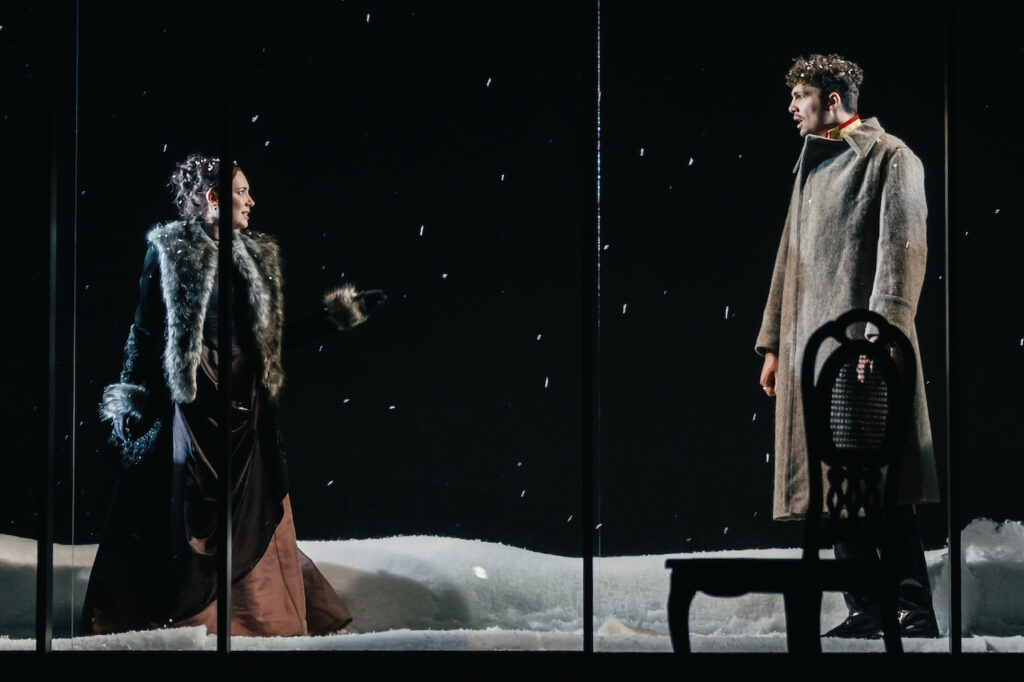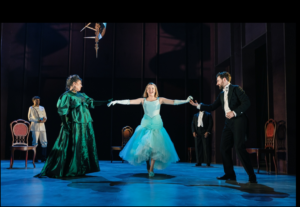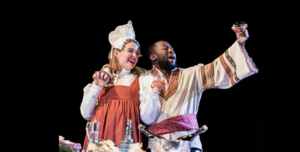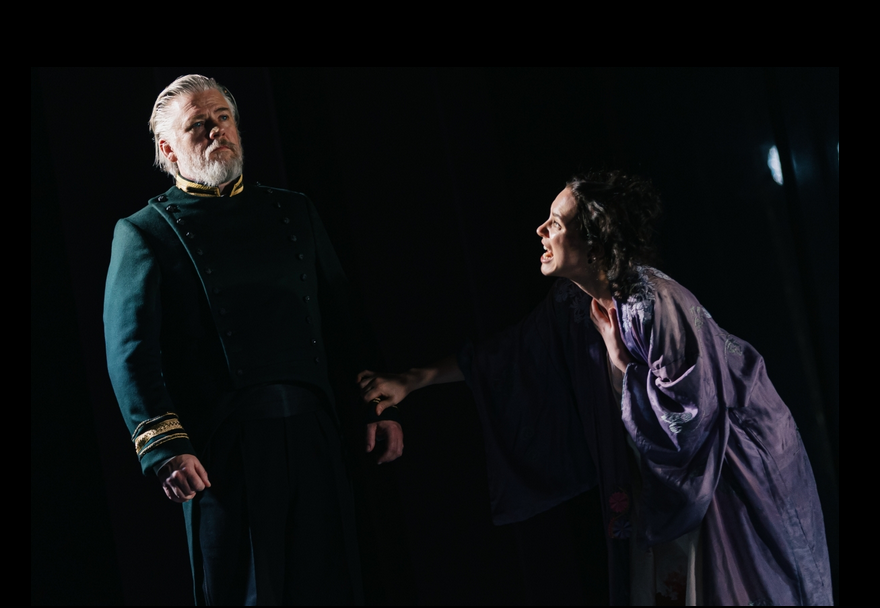
7 – 24 June
‘Behave yourself. You know the rules.’ But Anna Karenina cannot resist breaking those rules, and disaster follows. Cleverly staged, visually striking and nimbly directed by Polina Kalinina, there is much to admire in this re-imagining of Tolstoy’s weighty masterpiece. Writer Lesley Hart has distilled the broad sweep of Anna Karenina into a play that discards all the musings on politics, social class, and the agrarian economy, and focuses solely on the themes relating to marriage and sexual morality in a patriarchal society. Realism has been eschewed in favour of theatricality, with characters commenting on the fast-flowing action like a gossipy Greek chorus, and much use is made of the cinematic intercutting of separate scenes, thus enabling separate narrative threads to be presented simultaneously.
Emma Bailey’s ingenious minimalist set design facilitates swift changes of location and atmosphere, from formal dining room to passionate boudoir, and from claustrophobic city to wide open countryside. Over it all there hangs a great chandelier-like structure, mysterious and threatening.
In the title role, Lindsey Campbell brilliantly conveys the emotional crisis of a wife determined to escape from the stifling confines of a coldly conventional marriage, yet who is guilt-ridden over her abandonment of her young son. Finding no easy solution to her dilemma, and becoming dangerously paranoid about the infidelity of her lover Vronsky, she is both unhinged and uninhibited. In a scene of Shakespearian power, she lays bare the agonies of a woman trapped in a society that is swift to condemn any woman seeking self-fulfilment.
The hypocrisy of that society is seen clearly in the behaviour of Anna’s brother, Stiva (Angus Miller). He is a reckless philanderer, yet his immorality would appear to do him no permanent harm, for he is allowed to charm his way out of trouble. Miller’s light-footed, twinkly-eyed performance makes the roguish Stiva the most instantly likeable of all the characters.

Should we like him? Possibly not. His wife, Dolly (Jamie Marie Leary), does not like him. Leary delivers a magnificently spirited performance as Dolly, whose misery and rage is delivered in a torrent of four-letter expletives the incongruity of which strikes a comic, rather than tragic tone. Though the women are tightly laced up in their silken gowns, their language, especially Dolly’s, is frequently uninhibitedly earthy. This is initially amusing, but it is overdone and becomes a little tedious. It seems odd to endow the female characters such unrestrained and sexually frank language in a play depicting a morally stern and misogynistic society. That unbending sternness is embodied in Anna’s husband, Karenin, but in Stephen McCole’s carefully judged performance there is evidence of a human heart beating within.
As Kitty, Dolly’s younger sister, Tallulah Greive skilfully depicts her transition from sweet, wide-eyed ingenue to exasperated wife, as she strives to cope with the diffidence of her over-sensitive husband, Levin.

Ray Sesay gives a touchingly sympathetic performance as Levin, full of endearing charm but wracked with self-doubt. In a beautifully staged hunting scene we see that he represents all the virtues of a life wedded to the natural world, though the complexities of his character are given little time to be explored in any great depth. As Anna’s lover Vronsky, Robert Akodoto portrays an attractive but shallow young man of good intentions, unaware of just how challenging and tangled life can become. That naivety proves dangerous and Vronsky is quickly out of his depth.
There is a sense in the second act of loose ends being tied up rather too quickly, and at times an unevenness and uncertainty of mood. However, this is an inventive, well-acted and thoroughly engaging Anna Karenina.
★★★★☆ Mike Whitton, 9 June 2023


